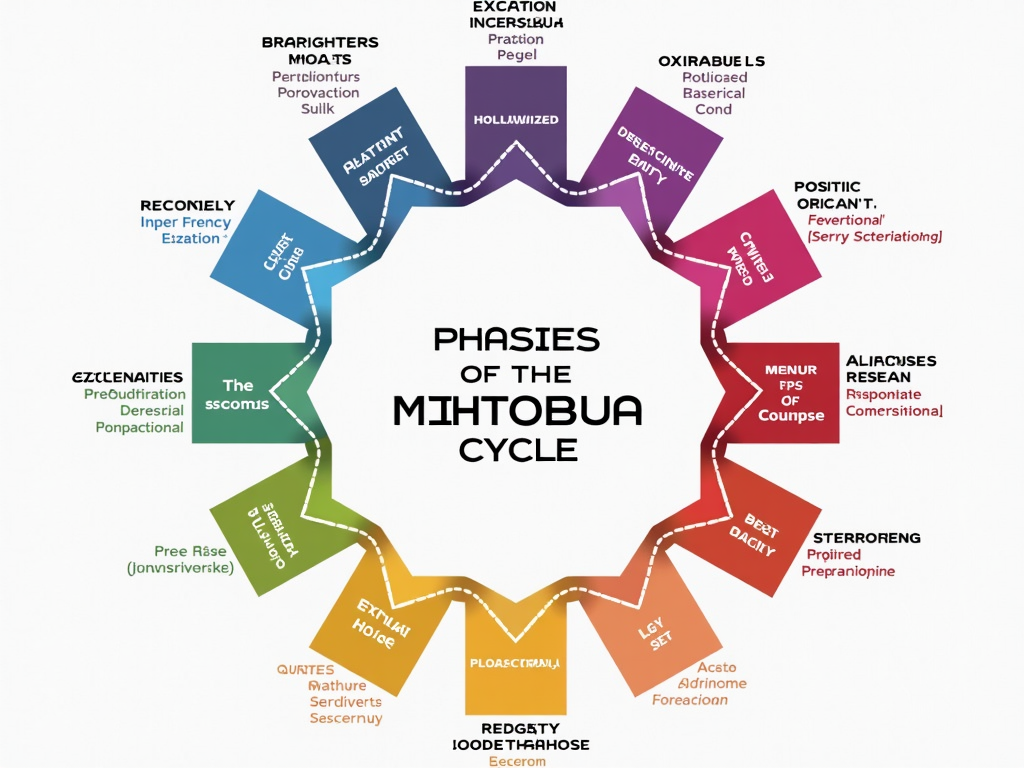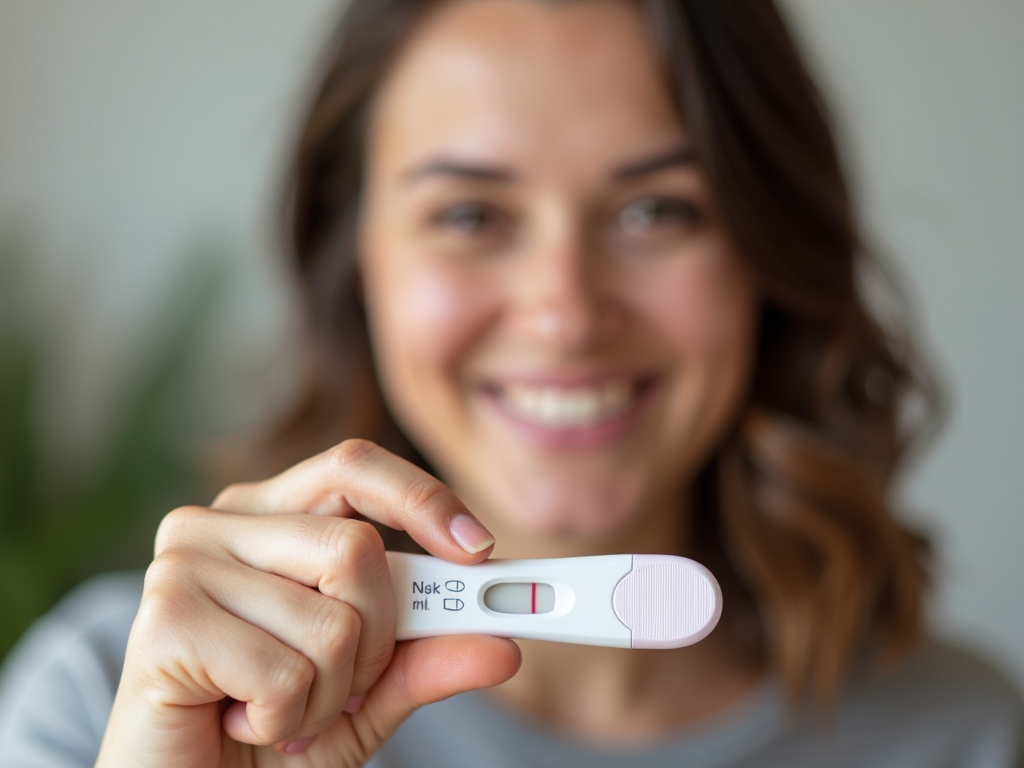Fertility 101: What Every Woman Needs to Know
May 27, 2025, 7:42 a.m.
Fertility is a topic that touches the lives of many women, yet it can often feel overwhelming or shrouded in mystery. Whether you're planning to start a family soon or just want to understand your body better, knowing the basics of fertility is essential. This guide will walk you through everything you need to know about fertility, from the menstrual cycle to common fertility issues and when to seek help from a reproductive endocrinologist. We'll also explore fertility treatments and provide actionable tips to help you take control of your reproductive health.

Understanding the Menstrual Cycle
The menstrual cycle is the foundation of fertility. It typically lasts between 21 and 35 days and is divided into several phases: the follicular phase, ovulation, and the luteal phase. Each phase is driven by hormones that prepare the body for a potential pregnancy.
- Follicular Phase: This phase begins on the first day of your period and lasts until ovulation. During this time, the body produces follicle-stimulating hormone (FSH), which helps develop eggs in the ovaries.
- Ovulation: Around the middle of the cycle, a surge in luteinizing hormone (LH) triggers the release of a mature egg from the ovary. This is when you're most fertile.
- Luteal Phase: After ovulation, the body produces progesterone to prepare the uterus for a possible pregnancy. If the egg isn't fertilized, hormone levels drop, and the cycle starts over.
Understanding your menstrual cycle is crucial because it helps you identify your fertile window—the days when you're most likely to conceive. Tracking your cycle can also alert you to any irregularities that might indicate a fertility issue.

Ovulation: The Key to Fertility
Ovulation is the process where a mature egg is released from the ovary, making it available for fertilization. For most women, ovulation occurs about 14 days before the start of their next period. However, this can vary depending on the length of your cycle.
To pinpoint ovulation, you can use several methods: - Basal Body Temperature (BBT) Tracking: Your body temperature rises slightly after ovulation. By charting your BBT daily, you can identify when ovulation has occurred. - Ovulation Predictor Kits (OPKs): These kits detect the surge in LH that happens just before ovulation. - Cervical Mucus Monitoring: The consistency of cervical mucus changes throughout the cycle, becoming clear and stretchy (like egg whites) around ovulation.
Knowing when you ovulate can help you time intercourse for the best chance of conception.
Factors That Affect Fertility
Fertility can be influenced by a variety of factors, some of which are within your control, while others are not. Here are some key factors to consider:
- Age: Fertility naturally declines with age, especially after 35, due to a decrease in the number and quality of eggs.
- Lifestyle Choices: Smoking, excessive alcohol consumption, and being overweight or underweight can all negatively impact fertility.
- Medical Conditions: Conditions like polycystic ovary syndrome (PCOS), endometriosis, and thyroid disorders can affect fertility.
- Stress: High levels of stress can disrupt hormone balance and affect ovulation.
While you can't change your age, you can make lifestyle adjustments to improve your fertility. Eating a balanced diet, exercising regularly, and managing stress are all steps you can take to support your reproductive health.

Common Fertility Issues
Infertility is defined as the inability to conceive after one year of trying (or six months if you're over 35). It affects about 10-15% of couples, and both men and women can experience fertility issues. Some common causes of infertility in women include:
- Ovulation Disorders: Conditions like PCOS can prevent regular ovulation.
- Tubal Blockage: Blocked fallopian tubes can prevent the egg and sperm from meeting.
- Uterine Abnormalities: Fibroids or polyps in the uterus can interfere with implantation.
- Endometriosis: This condition occurs when tissue similar to the uterine lining grows outside the uterus, potentially affecting fertility.
If you're struggling to conceive, it's important to remember that you're not alone, and there are treatments available to help.
When to See a Reproductive Endocrinologist
If you've been trying to conceive without success, it might be time to consult a reproductive endocrinologist—a specialist in fertility and hormonal disorders. You should consider seeking help if:
- You're under 35 and have been trying for a year.
- You're over 35 and have been trying for six months.
- You have irregular periods or known fertility issues.
- You've experienced multiple miscarriages.
A reproductive endocrinologist can help diagnose the cause of infertility and recommend appropriate treatments. They can also provide support for menstrual disorders that may be affecting your fertility.

Fertility Treatments: What to Expect
Fertility treatments vary depending on the cause of infertility and can range from medications to assisted reproductive technologies (ART). Some common treatments include:
- Medications: Drugs like Clomid or letrozole can stimulate ovulation.
- Intrauterine Insemination (IUI): Sperm is placed directly into the uterus during ovulation.
- In Vitro Fertilization (IVF): Eggs are retrieved, fertilized in a lab, and then implanted into the uterus.
Each treatment has its own success rates and potential side effects, so it's important to discuss your options with your doctor. Below is a table comparing some common fertility treatments:
| Treatment | Description | Success Rate | Potential Side Effects |
|---|---|---|---|
| Clomid | Oral medication to stimulate ovulation | 10-20% per cycle | Hot flashes, mood swings |
| IUI | Sperm is inserted directly into the uterus | 10-20% per cycle | Cramping, spotting |
| IVF | Eggs are fertilized in a lab and implanted | 20-40% per cycle | Bloating, mood changes |
Remember, fertility treatments can be emotionally and physically demanding, so it's important to have a strong support system in place.
Taking Control of Your Fertility Journey
Understanding fertility is the first step toward taking control of your reproductive health. By learning about your menstrual cycle, tracking ovulation, and making healthy lifestyle choices, you can optimize your chances of conceiving. If you encounter challenges, don't hesitate to seek help from a reproductive endocrinologist who can guide you through the process and recommend appropriate treatments.
Fertility is a journey, and it's important to be patient and kind to yourself along the way. Remember, you're not alone—many women face similar challenges, and there are resources and support available to help you achieve your family-building goals.

In summary, Fertility 101 covers the essentials of understanding your reproductive health, from the menstrual cycle and ovulation to factors affecting fertility and when to seek professional help. By staying informed and proactive, you can navigate your fertility journey with confidence.